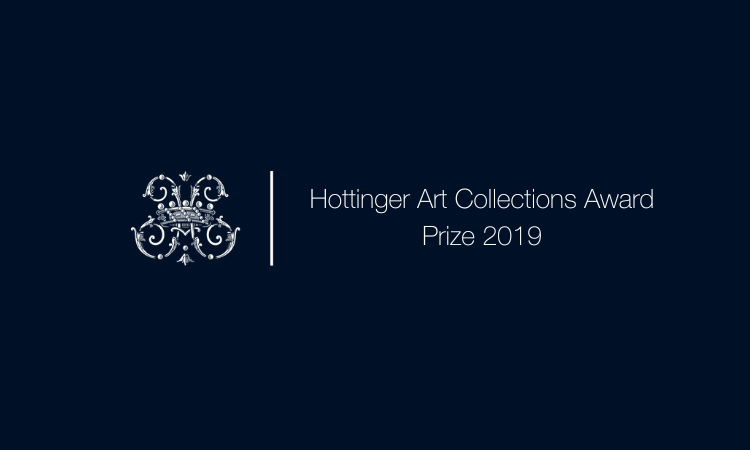By Emily Woolard, Strategy & Marketing Manager
Mohammed Sami, a Master of Fine Arts graduate from Goldsmiths, was awarded the annual Hottinger Prize for Excellence at an event on Tuesday 8 January at the Mall Galleries, London. Hottinger’s guests were treated to a private tour of the FBA Futures 2019 exhibition, celebrating a selection of work from the most promising art graduates, before the collection was officially opened to the public.
Presented by Alastair Hunter, Hottinger board member and Chairman of Hottinger Art Collections, the award, now its second year, has the aim of supporting emerging artists in the localities in which the Group operates.
Alastair said: “We were delighted to award the Hottinger Prize for Excellence to Mohammed Sami. Whilst the standard of competition was incredibly high and diverse stylistically, his work stood out as both evocative and of the highest technical quality.
The team at Hottinger passionately believes in supporting talented individuals in the art world to give them the early recognition they richly deserve.
We are very proud to be the custodians and owners of Mohammed’s wonderful exhibit and very much look forward to seeing what he does next.”
Winner Mohammed Sami trained in fine arts in Baghdad before attending Ulster University. He was awarded his Master of Fine Arts from Goldsmiths in 2018. Mohammed’s work uses painting to explore the anecdotes of personal memory. His piece Unedited Still Life has been purchased for the Hottinger collection.
Mohammed said: “I was very pleased to receive this award, particularly given the standard of the other artists. I am looking forward to seeing my work displayed by Hottinger.”
Tomi Olopade was selected as the runner up. He studied at Leeds College of Art and impressed with his collection of oil paintings Good Hair, which explores the importance of hair styles and hair care in Black culture. Tomi will be producing a new work on commission for the Hottinger collection.

As well as awarding the art prize, the Group has recently launched a new company, Hottinger Art Ltd, and the team were delighted to welcome Mélanie Damani on board. An art-market expert, Mélanie is also a qualified lawyer who was formerly Head of Art Advisory for Edmond de Rothschild Group. Mélanie will apply her expertise across range of consultancy services and will guide Hottinger clients in the management of their art collections and in their planning for the future.”
The Hottinger Prize for Excellence was first awarded in January 2018 to Glasgow School of Art graduate Hannah Mooney, who will be the subject of a solo exhibition at the Scottish Gallery in 2019. The Prize is a purchase prize, with the winner’s work added to Hottinger’s collection. In 2019, a runner-up commission prize was also awarded due to the high standard of entries.












 The introduction of centralised exchanges (such as Liv-ex in 2000) and the use of technology has markedly improved market liquidity and transparency. This has created a sophisticated space for fine wine as an alternative investable asset. Enhanced price discovery and security has allowed the market to develop an infrastructure similar to that of mainstream investment markets such as equities, with a success not yet seen in other collectibles such as art, cars and jewellrey. This has led to dramatic improvements in liquidity (the average market spread of the Liv-ex 50 index – Bordeaux First Growths – is approximately 3.5%) and a stable market environment.
The introduction of centralised exchanges (such as Liv-ex in 2000) and the use of technology has markedly improved market liquidity and transparency. This has created a sophisticated space for fine wine as an alternative investable asset. Enhanced price discovery and security has allowed the market to develop an infrastructure similar to that of mainstream investment markets such as equities, with a success not yet seen in other collectibles such as art, cars and jewellrey. This has led to dramatic improvements in liquidity (the average market spread of the Liv-ex 50 index – Bordeaux First Growths – is approximately 3.5%) and a stable market environment. Given the low volatility, the low correlation, the high liquidity and the high returns, all on a relative basis compared to other asset classes, an investment in wine becomes a must have for investors looking to establish or to maintain a well-balanced investment portfolio.
Given the low volatility, the low correlation, the high liquidity and the high returns, all on a relative basis compared to other asset classes, an investment in wine becomes a must have for investors looking to establish or to maintain a well-balanced investment portfolio.




